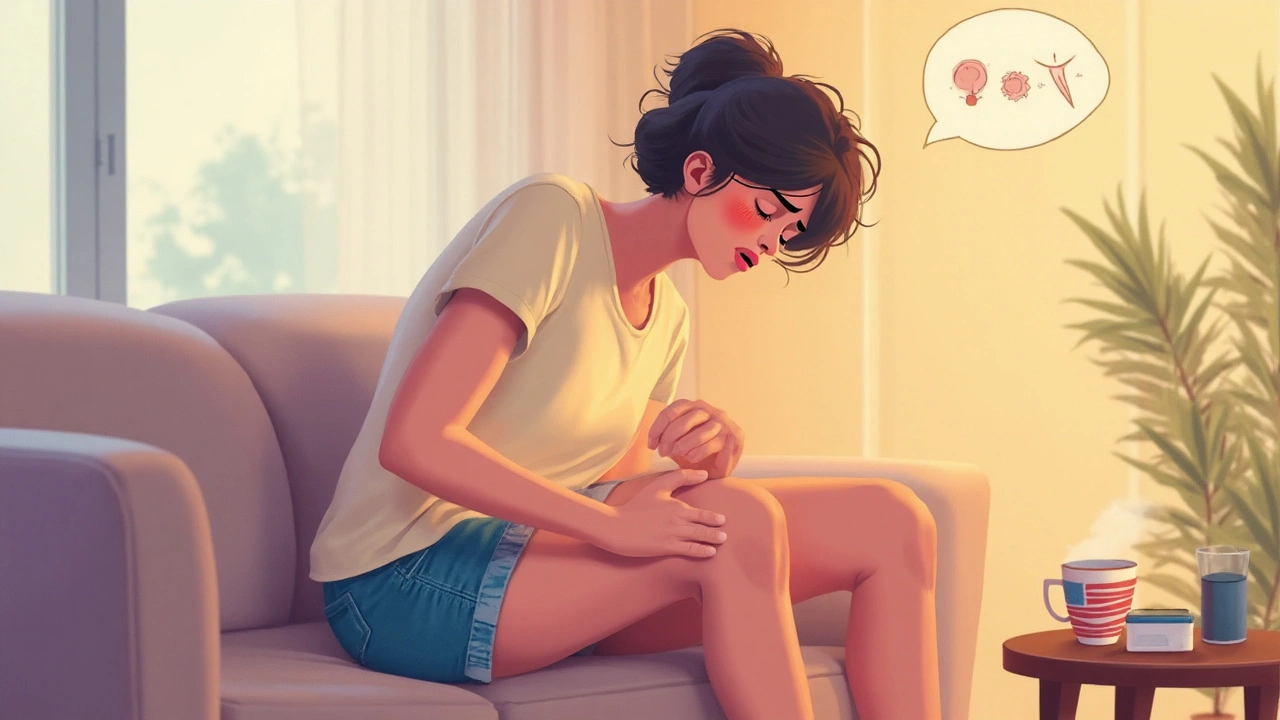Anal Itching: Causes, Relief, and When to Seek Help
When you feel anal itching, it’s more than a minor annoyance – it can hint at a range of everyday issues. Anal itching, a persistent or occasional urge to scratch the skin around the anus, often described as pruritus ani. Also known as pruritus ani, it shows up when the delicate skin there gets irritated, inflamed, or infected. Understanding why it happens helps you stop the cycle before it disrupts your day.
Common Triggers and How They Interact
One of the most frequent culprits is hemorrhoids, swollen veins in the rectal area that can become itchy, sore, or bleed. Hemorrhoids often coexist with poor hygiene, creating a perfect storm for irritation. Another big player is fungal infection, usually caused by Candida species that thrive in warm, moist environments. When the skin around the anus stays damp, fungus can grow quickly, and the itching intensifies. Your diet matters, too – dietary irritants, foods like spicy peppers, citrus, or caffeine that can increase bowel movements or cause a burning sensation often flare up the problem. Lastly, parasites such as pinworms can trigger relentless scratching, especially in children, because the worms lay eggs around the anus at night, leading to a cycle of irritation.
All these factors link together: anal itching encompasses skin irritation, requires proper hygiene, and is influenced by diet and infection. If you notice a pattern – for example, the itch worsens after a spicy meal or after a bout of diarrhea – you’re seeing that cause‑and‑effect relationship in real time. Simple steps like gentle cleansing with warm water, avoiding harsh soaps, and keeping the area dry can break the chain for many people.
When the itch doesn’t quit, consider the broader picture. Skin conditions such as eczema or psoriasis can affect the perianal skin, making it extra sensitive. Inflammatory bowel diseases like Crohn’s or ulcerative colitis can cause mucus and secretions that irritate the area. If you’ve tried home remedies for weeks and the symptoms persist, it’s time to get a professional opinion. A doctor can rule out deeper issues, prescribe topical steroids, antifungal creams, or suggest a stool softener to reduce friction.
Below you’ll find a curated list of articles that dig deeper into each of these topics – from step‑by‑step hygiene guides to what medications actually work. Whether you’re looking for quick relief tips or want to understand the medical side of chronic pruritus ani, the collection ahead has practical insights you can act on right now.
How Anal Itching Affects Mental Health - Causes, Symptoms & Coping Strategies
Explore how anal itching impacts mental well‑being, its causes, symptoms, and practical steps to manage both skin and emotional health.

